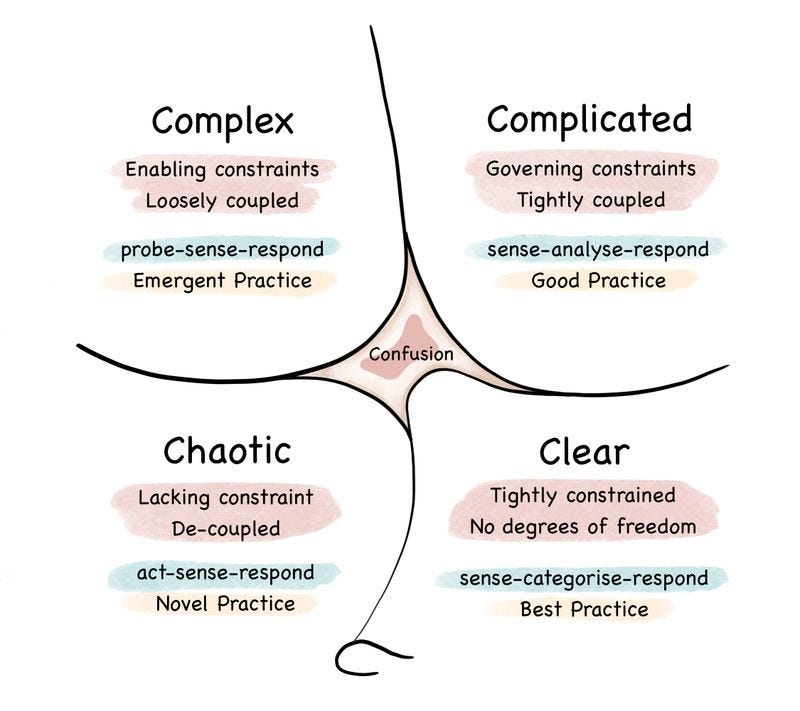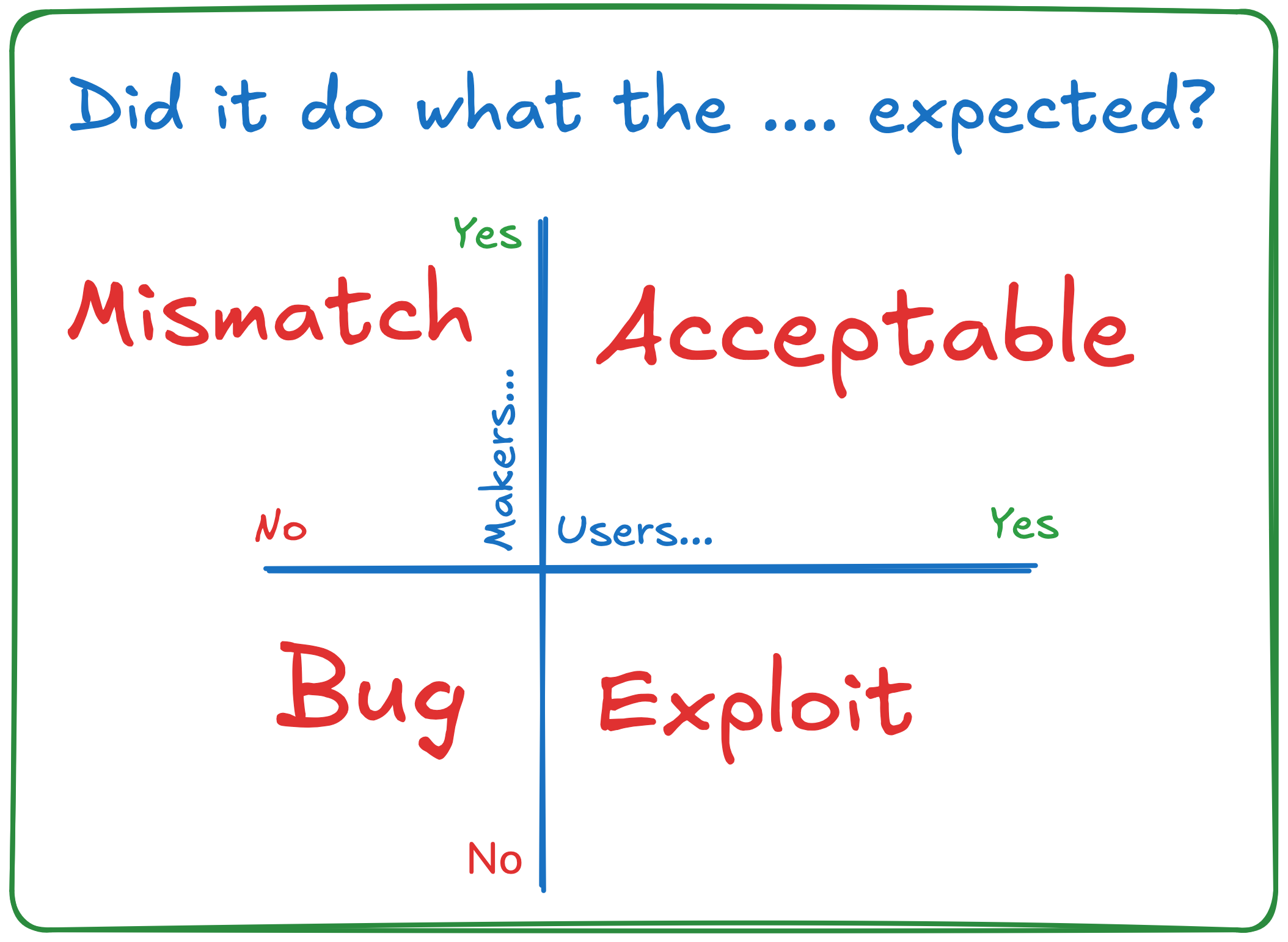Why to measure and make our system observable? How to reason on chaotic world
Welcome to the next week! Did you watch or listen to the last releases with our special guests? Maybe you thought that they were sidetracks of the observability series, so the previous editions we did? If you did, then that’s not quite the intention I had behind them. Ok, so what was it? I wanted to look on observability, measurements, and instrumentation from different perspectives. Observability is not only about the technical CPU metrics or memory usage; it’s about getting insights into our system's behaviour. Moreover, those insights are not worth a penny if we cannot take benefit of them. Before I tell you the story of my project, let’s see what our guests said. Gojko highlighted that we live in an unpredictable world and need to accept it. We cannot predict everything, but we can prepare our systems by making them observable, which will at least give us tools for investigation.
In my opinion, that also goes pretty well with Cynefin framework . Knowns and unknownsIt states that we have four types of decision-making contexts (or domains): clear, complicated, complex, and chaotic. They also add confusion to the mix. And that sounds like a fair categorisation of the problems we face. Clear issues we solve on autopilot, chaotic ones we tend to ignore, and complex ones sound like a nice challenge. And complicated problems? We call them tedious. Complex problems are called unknown unknowns. This is the place where we feel creative; we do an explorer job. We probe sense and respond. The design emerges and Agile shines. We solve it, and then we go further into the sunset scenery like a lonesome cowboy. Off we go to the next exciting problem. Complicated issues, on the other hand, are known unknowns. They represent something that has to be done. If we have the expertise, we can sense it with our educated gut feeling, analyse it and respond with a solution. In other words, we usually know what we need to do, but we need to find an exact how to solve it. Unknowns are more tactical than strategic. (Read also more in my article Not all issues are complex, some are complicated. Here's how to deal with them). While doing design sessions, building our user personas, and interviewing domain experts and potential users, we’re trying to discover as much as we can and make some predictions on the outcomes. By that, we’re trying to reduce our Complex and Chaotic problems into smaller, manageable, Clear or Complicated features. Still, as Gojko nicely explained in his recent article, there’s always a potential mismatch between our and users’ expectations: The best case is when we have alignment with our users and reach an acceptable outcome. The others are least preferable; we’re getting
We need data to understand whether our expectations about complexity and user needs match reality. And here’s my story. A clickbait feature goes rogueWe were making a cloud version of our legacy product. By legacy, I mean that it was written in an old tech stack but still used and paid for by the users. It was the system used to manage, share and exchange big project files (one file could have over a few gigabytes)... Continue reading this post for free in the Substack app |
Older messages
Webinar #23 - Gojko Adzic on designing product development experiments with Lizard Optimization
Monday, October 7, 2024
"My favorite conspiracy theory is that the stuff we make in software actually has any sense." As you see, we started strong in this week's episode. That's a quote from Gojko Adzic,
Webinar #22 - On Performance Testing with Jarosław Pałka
Monday, September 30, 2024
This time, our webinar has a special guest: Jarosław Pałka. He's the Senior Staff Software Engineer responsible for benchmarking infrastructure in Neo4j.We discussed how to reason about performance
Making your system observability predictable
Monday, September 23, 2024
Everyone claims that observability is the key for production readiness. Yet, most of us just adds auto-instrumentation right before going to production and call it a day. That's fine, but not
Making your system observability predictable
Monday, September 23, 2024
Everyone claims that observability is the key for production readiness. Yet, most of us just adds auto-instrumentation right before going to production and call it a day. That's fine, but not
When Logs and metrics aren't enough: Discovering Modern Observability
Monday, September 16, 2024
Let's return to the previous series and discuss the typical challenge of distributed systems: Observability. We'll continue to use managing a connection pool for database access as an example
You Might Also Like
Data Science Weekly - Issue 588
Thursday, February 27, 2025
Curated news, articles and jobs related to Data Science, AI, & Machine Learning ͏ ͏ ͏ ͏ ͏ ͏ ͏ ͏ ͏ ͏ ͏ ͏ ͏ ͏ ͏ ͏ ͏ ͏ ͏ ͏ ͏ ͏ ͏ ͏ ͏ ͏ ͏ ͏ ͏ ͏ ͏ ͏ ͏ ͏ ͏ ͏ ͏ ͏ ͏ ͏ ͏ ͏ ͏ ͏ ͏ ͏ ͏ ͏ ͏ ͏ ͏ ͏ ͏ ͏ ͏ ͏ ͏ ͏ ͏
💎 Issue 458 - Why Ruby on Rails still matters
Thursday, February 27, 2025
This week's Awesome Ruby Newsletter Read this email on the Web The Awesome Ruby Newsletter Issue » 458 Release Date Feb 27, 2025 Your weekly report of the most popular Ruby news, articles and
📱 Issue 452 - Three questions about Apple, encryption, and the U.K
Thursday, February 27, 2025
This week's Awesome iOS Weekly Read this email on the Web The Awesome iOS Weekly Issue » 452 Release Date Feb 27, 2025 Your weekly report of the most popular iOS news, articles and projects Popular
💻 Issue 451 - .NET 10 Preview 1 is now available!
Thursday, February 27, 2025
This week's Awesome .NET Weekly Read this email on the Web The Awesome .NET Weekly Issue » 451 Release Date Feb 27, 2025 Your weekly report of the most popular .NET news, articles and projects
💻 Issue 458 - Full Stack Security Essentials: Preventing CSRF, Clickjacking, and Ensuring Content Integrity in JavaScript
Thursday, February 27, 2025
This week's Awesome Node.js Weekly Read this email on the Web The Awesome Node.js Weekly Issue » 458 Release Date Feb 27, 2025 Your weekly report of the most popular Node.js news, articles and
💻 Issue 458 - TypeScript types can run DOOM
Thursday, February 27, 2025
This week's Awesome JavaScript Weekly Read this email on the Web The Awesome JavaScript Weekly Issue » 458 Release Date Feb 27, 2025 Your weekly report of the most popular JavaScript news, articles
💻 Issue 453 - Linus Torvalds Clearly Lays Out Linux Maintainer Roles Around Rust Code
Thursday, February 27, 2025
This week's Awesome Rust Weekly Read this email on the Web The Awesome Rust Weekly Issue » 453 Release Date Feb 27, 2025 Your weekly report of the most popular Rust news, articles and projects
💻 Issue 376 - Top 10 React Libraries/Frameworks for 2025 🚀
Thursday, February 27, 2025
This week's Awesome React Weekly Read this email on the Web The Awesome React Weekly Issue » 376 Release Date Feb 27, 2025 Your weekly report of the most popular React news, articles and projects
February 27th 2025
Thursday, February 27, 2025
Curated news all about PHP. Here's the latest edition Is this email not displaying correctly? View it in your browser. PHP Weekly 27th February 2025 Hi everyone, Laravel 12 is finally released, and
📱 Issue 455 - How Swift's server support powers Things Cloud
Thursday, February 27, 2025
This week's Awesome Swift Weekly Read this email on the Web The Awesome Swift Weekly Issue » 455 Release Date Feb 27, 2025 Your weekly report of the most popular Swift news, articles and projects



